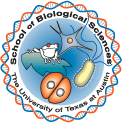|

|
|
|
| Course Summary |
This is a high workload, upper division, introductory/intermediate course in immunology; the study of how organisms define and defend themselves from the environment.
This course is suitable for students majoring within the biological sciences and who have met the course pre-requisites.
Immunology is a challenging subject to master, as the immune system is redundant, highly integrated and involves numerous complex cascades. The immune function also employs many organs and cell types to provide an organism wide surveillance and defense system.
To facilitate studying the immune system, emphasis in the course is placed upon integration and understanding of the course material. The course highlights multiple approaches to conceptualize information and assemble models of complex topics. |
| |
|
| Topics Covered |
The topics covered during the course include:
- Philosophy of the immune system
- Organs of the immune system
- Primary, secondary and tertiary organs
- Cells of the immune system
- Innate and adaptive immune cells
- Molecules of the immune system
- Innate and adaptive molecules
- Immunoglobulin and B cell receptor
- Major Histo Compatibility molecules
- T cell receptor
- Complement
- Communication and regulation between the immune functions
- Normal functions of the immune system
- B and T cell production, maturation and activation
- Problems of the immune system
- Auto-immunity and hypersensitivity
- Tissue rejection
|
| |
|
| NOTE: |
The course is designed to supplement and support the Immunology Laboratory course BIO160L. |
|
|